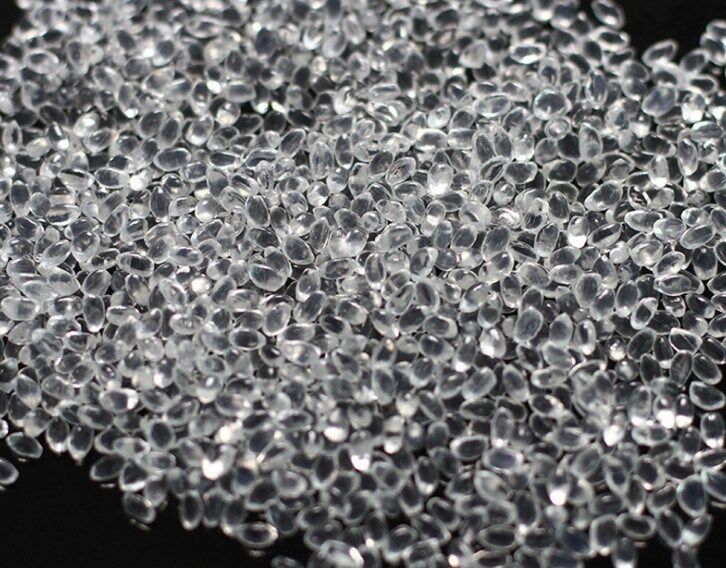Erreur de format d'e-mail
emailCannotEmpty
emailDoesExist
pwdLetterLimtTip
inconsistentPwd
pwdLetterLimtTip
inconsistentPwd

Offer Technical Support and Customized Solutions
The company is committed to creating new and improved plastic materials to meet the evolving demands of the market.

Exploring the World of Material Plástico Reciclado
Introduction
In the contemporary quest for sustainable living, the significance of "material plástico reciclado" or recycled plastic material cannot be overstated. As we navigate the environmental challenges posed by plastic waste, the adoption of recycled plastic emerges as a pivotal solution, offering a bridge between ecological responsibility and innovative design.
Environmental Impact of Recycled Plastic
When we delve into the environmental impact of "material plástico reciclado," a remarkable reduction in plastic pollution becomes evident. This recycled material stands as a beacon of hope, showcasing a significantly lower carbon footprint compared to its counterpart, virgin plastic. By choosing recycled plastic, we actively contribute to the conservation of precious natural resources, aligning with the principles of sustainable living.
Innovations in Recycled Plastic Products
In the realm of design and manufacturing, the creative applications of recycled plastic materials are reshaping industries. From stylish furniture pieces to trendy fashion accessories and sustainable packaging solutions, designers and manufacturers are embracing the versatility of "material plástico reciclado." This not only reflects a commitment to environmental responsibility but also fosters a new era of aesthetically pleasing and functional products.
Recycling Processes for Plastic
Understanding the diverse methods employed in recycling plastic sheds light on the advancements in the field. Mechanical recycling and chemical recycling play crucial roles in transforming discarded plastic into valuable resources. Innovative technologies are addressing challenges in plastic sorting, ensuring that the recycling process becomes more efficient and sustainable.
Market Trends and Opportunities in the Recycled Plastic Industry
The current market analysis of recycled plastic materials reveals a growing demand for sustainable alternatives. Entrepreneurs keen on making a positive impact are finding lucrative opportunities in both product manufacturing and the establishment of recycling facilities. This aligns with a global shift towards eco-friendly practices, emphasizing the economic viability of "material plástico reciclado."
Government Policies and Regulations on Recycled Plastic
National and international regulations shape the landscape of "material plástico reciclado." These policies not only ensure responsible production and usage but also incentivize businesses to adopt eco-friendly practices. By delving into these regulations, we gain insight into how governmental influence can propel the recycled plastic industry forward.

Consumer Education on Plastic Recycling
Empowering individuals with knowledge about plastic recycling is paramount. A conscious choice to dispose of plastic properly and opt for products made from "material plástico reciclado" can collectively make a significant impact. Simple tips, such as choosing recycled products, become powerful actions in the journey towards a more sustainable future.
Recycled Plastic in Construction
The application of recycled plastic in construction materials represents a harmonious convergence of durability and environmental consciousness. As builders explore alternatives, the integration of "material plástico reciclado" offers a compelling solution, addressing concerns related to strength, durability, and the broader environmental footprint of construction projects.
Circular Economy and Plastic Recycling
Embracing the concept of a circular economy further fortifies the role of "material plástico reciclado." Closed-loop systems and extended producer responsibility become guiding principles, emphasizing the importance of sustainable practices in the lifecycle of plastic materials. This holistic approach ensures that recycled plastic continues to circulate within the economy, minimizing waste and maximizing utility.
Case Studies of Successful Recycling Programs
Examining real-world examples reveals the tangible benefits of effective recycling initiatives. Communities and businesses implementing successful programs witness not only a reduction in environmental impact but also economic growth. These case studies underscore the transformative power of "material plástico reciclado" in creating resilient, environmentally conscious communities.
Challenges and Solutions in Plastic Recycling
Acknowledging challenges faced by the plastic recycling industry is crucial for fostering innovation. From issues in sorting to emerging technologies, identifying obstacles allows for the formulation of effective solutions. By overcoming challenges, the journey towards a sustainable future anchored in "material plástico reciclado" becomes more attainable.
Conclusion
In conclusion, the exploration of "material plástico reciclado" reveals a multifaceted approach to sustainability. From environmental impact to market trends, governmental regulations, consumer education, and applications in various industries, recycled plastic material stands as a testament to our commitment to a greener and more sustainable world. By integrating this material into our daily lives, we actively contribute to the paradigm shift towards a circular economy and a future built on the principles of responsible innovation.

